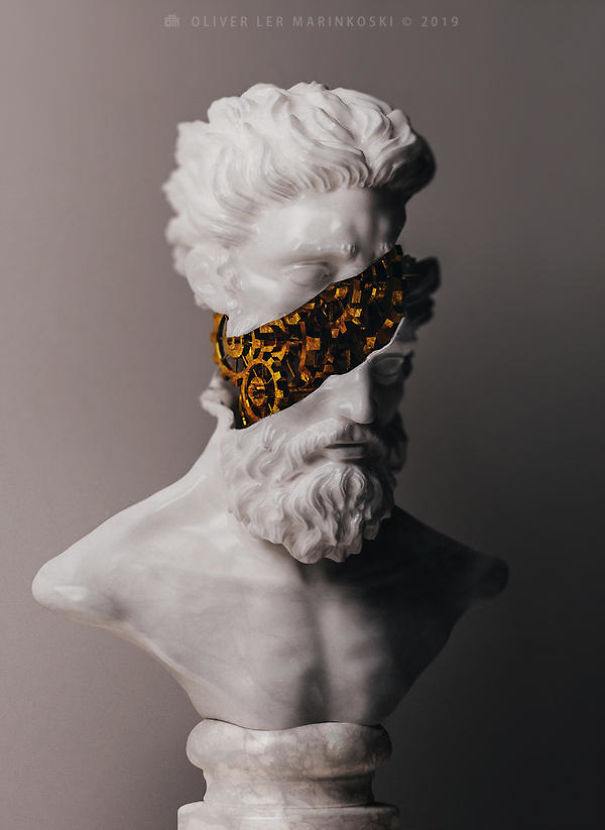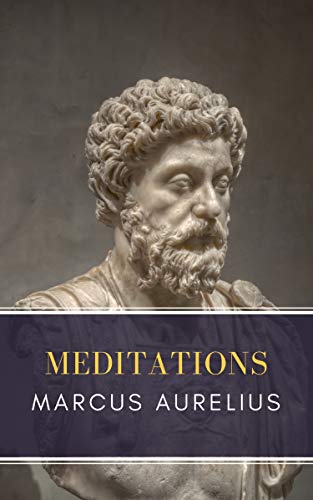
This article’s cover image artwork was created by the talented Oliver Ler Marinkoski @olivermarinkoski.
Stoicism developed about 200 years B.C. yet it’s quite amazing how up to date it’s always been. The Stoics worked diligently to understand the world for what it actually is. From that knowledge rose a philosophy able to withstand chaos, as well as the slings and arrows of misfortune.
Below we prepared a list of beautiful readings: The best books on stoicism, which will give you a peek into the “Philosophy of a Good Life”. This is one of Stoicism’s nicknames. So please, forget yourself for a moment, and prepare to enter into the minds of some of History’s best thinkers.
The definitive list for stoic readings starts with the classics, the reference authors will be Epictetus, Seneca and Marcus Aurelius. The three can be considered as the most prolific thinkers when it comes to the stoic school.
1. Epictetus:
The Handbook of Epictetus
The Art of Living: the classical manual on virtue, happiness and effectiveness
First of all, we must make an important remark, Epictetus didn’t write a single word.
Yep.
The books attributed to him were actually noted down by his followers, this is why we find slightly different names for them. The Handbook of Epictetus (also known as Enchiridion) and The art of Living should be considered the core guides to a stoic life. Stoicism is about the way we deal with our emotions and things we cannot control. And this is quite clear in the books. Epictetus created a system to help us make the distinction between what we can, and cannot control. More importantly, he did this as a slave, one who managed to earn his freedom. This is mainly attributed to the way he thought.
2. Seneca:
On The Shortness of Life
Moral’s of a happy life, benefits, anger and clemency
Letters from a Stoic.
When talking about Seneca, we would recommend these 3 books to begin with. The first one makes you realize that there really isn’t much time to argue about anything. It’s a wake-up call to enjoy life, as it is, now.
The second is a collection of famous writings, in which Seneca explores many ideas among them is anger. The collection teaches us how to deal with this feeling, how to tame it rather than letting it control our decision making.
The final one is Letters from a Stoic. Some say there was a letter exchange between Seneca and Saint Paul (who was in a Roman jail at the time). Seneca was emperor Nero’s political advisor. This was during the time when Christians were being thrown to the lions, which makes this possibility a little questionable. Nonetheless the original documents are still under scrutiny.
3. Marcus Aurelius:
Meditations

During his military campaigns the Roman Emperor kept a journal. One he never thought would go beyond himself, but it was published after his death. In it you find the thoughts of the most powerful man in the world at the time.
One of the main stoic exercises is to write a journal, reflecting about your day, and your feelings. From those reflections you learn about what should be developed and begin to formulate strategies for success. Marcus Aurelius’ journal has become the book “Meditations”. Once you read it, you’ll understand why he was considered such a great emperor. The most ironic aspect is that the person he used to consider his master, had been a slave all his life (Epictetus).
For those looking for something more contemporary, there are some books we would like to recommend for you if you’re looking for easy reads.
5. How to be a Stoic: using ancient philosophy to live a modern life by Massimo Pigliucci
This book is a real guide for the new century and is also a current proof that stoicism has never been out of date. Pigliucci shows us in a very clear way how to apply stoicism to our lives, a true antidote to chaos.
6. Ego is the Enemy by Ryan Holiday
Stoicism teaches us that we can only be affected by our perception of the world. And that is the focus of this book. It builds on this idea with solid evidence.
7. Thoughts of a Philosophical Fighter Pilot by Jim Stockdale
Last but not least. In this book, Stockdale sheds light on how his stoic mentality allowed him to survive a plane crash. And an eventual imprisonment. In his writing he explains how Epictetus was with him the whole seven years he was a prisoner (sorry, quite a spoiler).











